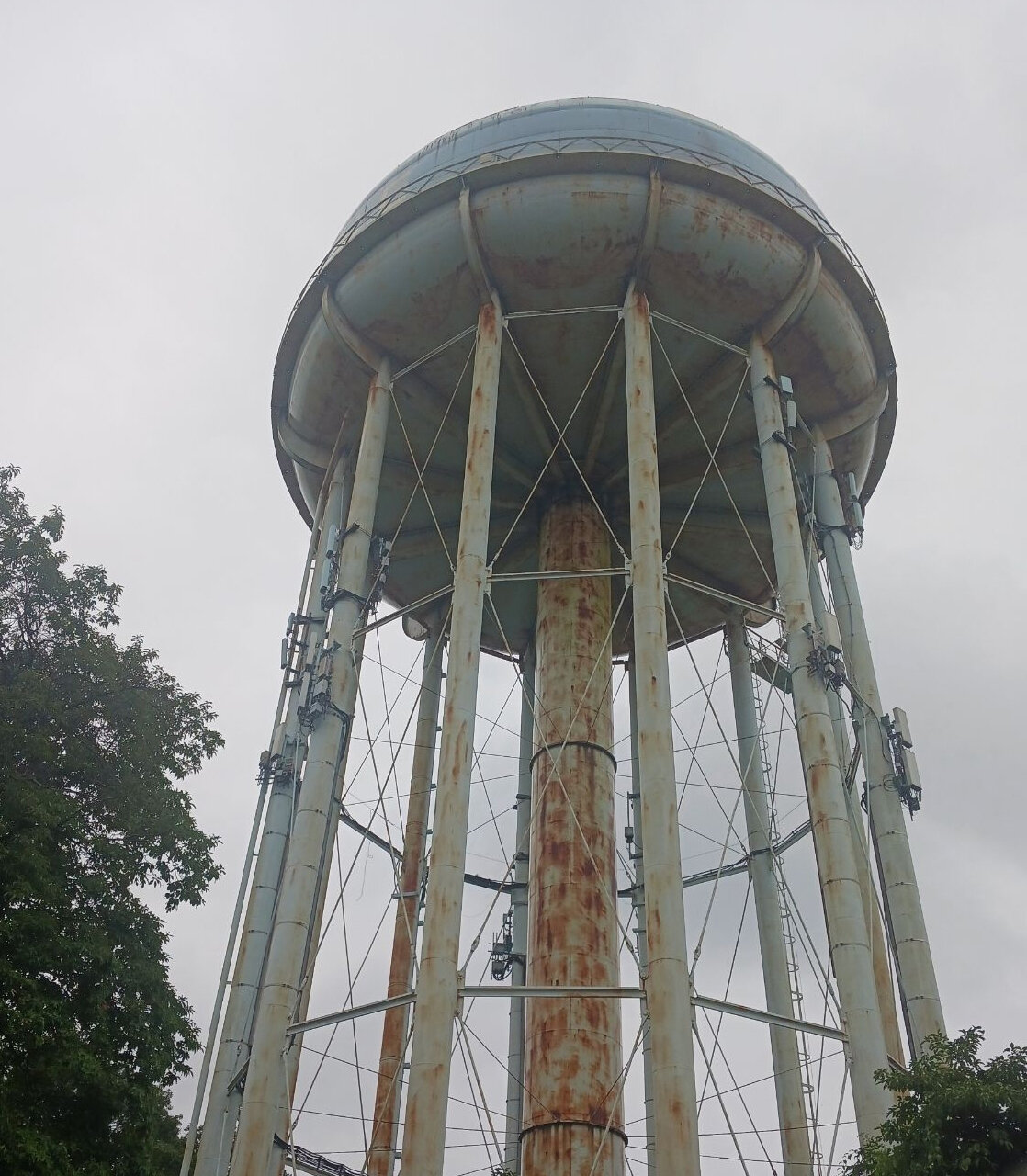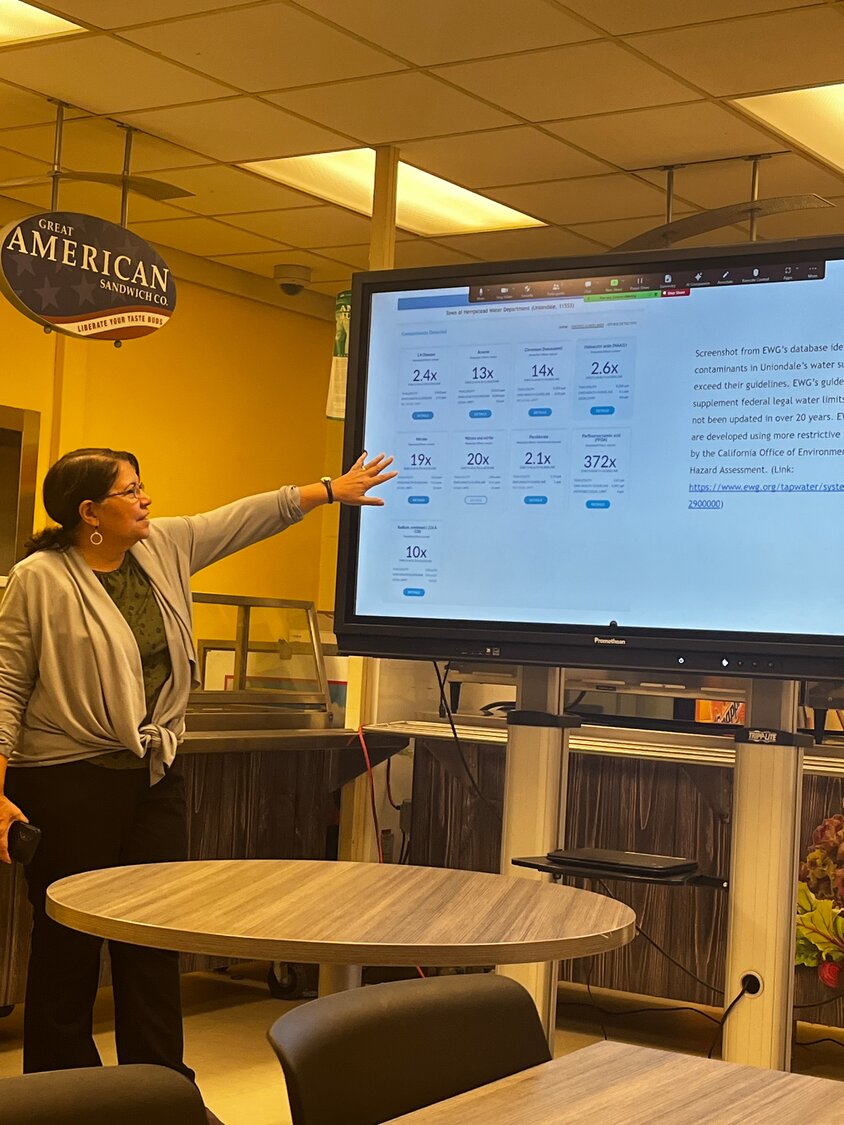New EPA standards offer hope for Uniondale’s water crisis, but challenges remain
Biden administration's water standards address PFAS, but what about 1,4 dioxane in Uniondale?
Uniondale residents have been trying to raise awareness of the community’s water quality for years.
Civic associations, like the Greater Uniondale Area Action Coalition, have had the drinking water tested by independent Nassau County labs and found elevated levels of PFAS, or polyfluoroalkyl substances, known as “forever chemicals” because they do not break down naturally.
PFAS are used in a variety of industrial and consumer products, including firefighting foam, nonstick cookware, food packaging, dental floss, waterproof clothing and furniture.
In addition, the Town of Hempstead’s most recent water quality report, in 2022, revealed high levels of 1,4-dioxane — a powerful chemical that is suspected of causing cancer — in Uniondale’s water. Though the report acknowledged that the concentrations it detected were above the state’s maximum contaminant level for 1,4 dioxane, it aimed to assure residents that the water is still safe for consumption and “does not pose a significant health risk.”
Lawrence Smith, a research analyst with Health Water Consultants, told the Herald that despite that disclaimer, he recommends proceeding with caution.
1,4 dioxane molecules are smaller than water molecules, making the chemical very difficult to effectively filter out. “This particular contaminant is very different from anything else,” Amanda Field, a former water commissioner for the hamlet of Plainview, said. “There is no home filtration system that can take this out.”
This week, the Biden administration and the Environmental Protection Agency announced new national standards limiting the amount of PFAS allowed in drinking water — the first time since the Safe Drinking Water Act Amendments of 1996 that a federal law has been passed governing drinking water contaminants. It gives municipalities, like the Town of Hempstead, three years to monitor their water’s PFAS levels and an additional two years to implement the changes needed to comply with the new standards.
There are over 14,000 known PFAS, according to the EPA, which can cause health issues such as cancer, organ damage and infertility. The new standards set maximum contaminant levels for six groups of the chemicals, with two of the most common groups, known as PFOA and PFOS — perfluorooctanoic acid and perfluorooctane sulfonic acid — limited to 4 parts per trillion, the rough equivalent of one drop of water in 20 Olympic-sized pools.
These chemical compounds are so widespread that the Centers for Disease Control and Prevention estimates that roughly 99 percent of all Americans have a detectable level of PFAS in their bodies.
A 2021 study of Uniondale’s water by the Environmental Working Group, a national nonprofit that focuses on environmental and public health issues, found a concentration of PFOA of 2.61 parts per trillion, 372 times higher than their recommended limit. Although this is below the new legal limit of 4 parts per billion, legality does not equate to safety, according to EWG.
“Getting a passing grade from the state and federal government does not mean the water meets the latest health guidelines,” the organization’s website states, “as the government’s legal limits are not health-protective.”
Besides PFOA, EWG found a total of 45 other known contaminants, none exceeding legal limits but nine exceeding the organization’s own health guidelines for safe consumption.
And residents like Jeannine Maynard, believe it is safe to assume that the concentration of these chemicals has increased since the study was conducted. EWG detected 1,4 dioxane at .8 parts per billion, but one year later, the Town of Hempstead measured the chemical at levels above the state’s maximum contaminant level of 1 part per billion.
“I’m thrilled,” Maynard said of the federal legislation, but she added that she thought more could and should be done to address the chemicals’ changing health standards and the presence of 1,4 dioxane.
In a statement, John Reinhardt, the Town of Hempstead’s water commissioner, said, “The Department has been testing for the compounds covered in the recently announced PFAS standards and is working with leading water quality professionals on Long Island to design improvements where needed to install additional treatment systems as needed to continue providing our consumers with the high-quality water they demand.”
“The Department of Water continues to move ahead with over $200 million in water-treatment improvements approved by the Town Board to address emerging contaminants including 1,4 dioxane and PFAS compounds,” Reinhardt told the Herald. “Work continues on the construction of these treatment plants, including the new advanced oxidation process systems being installed at the Oak Street well site in Uniondale.
“The town will continue to pursue all funding opportunities to meet these regulations,” Reinhardt added, “so that our residents are not saddled with the exorbitant costs to comply.”









